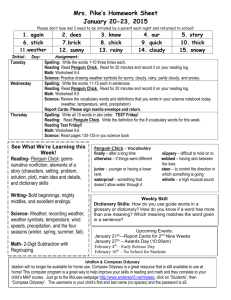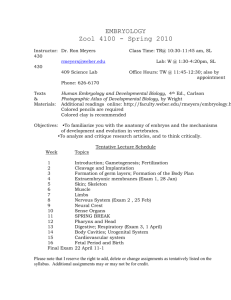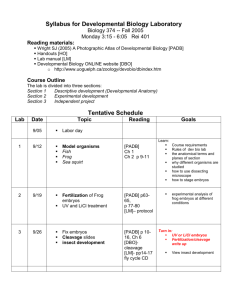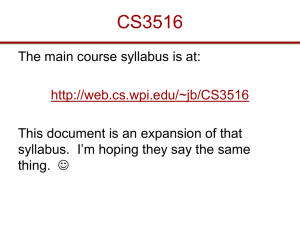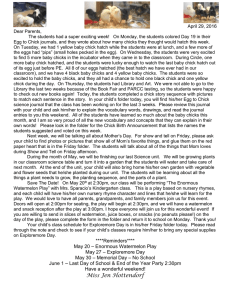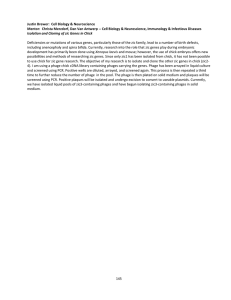MG 506: Principles of Marketing Fall 1998
advertisement
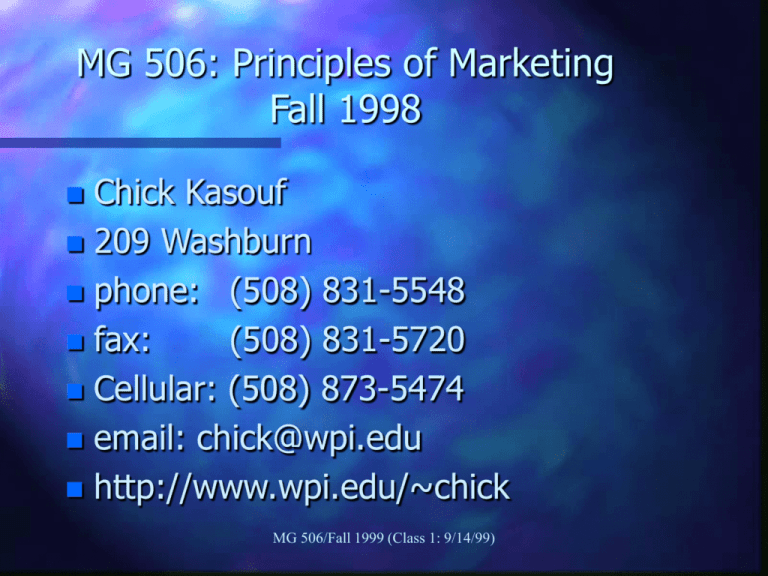
MG 506: Principles of Marketing Fall 1998 Chick Kasouf 209 Washburn phone: (508) 831-5548 fax: (508) 831-5720 Cellular: (508) 873-5474 email: chick@wpi.edu http://www.wpi.edu/~chick MG 506/Fall 1999 (Class 1: 9/14/99) Tonight’s Class (9/15/99) Course Introduction – Syllabus – Information sheets – Name cards What is marketing? Case Analysis MG 506/Fall 1999 (Class 1: 9/14/99) Marketing A social and managerial process by which individuals and groups obtain what they need and want through creating, offering, and exchanging products of value with others MG 506/Fall 1999 (Class 1: 9/14/99) Means of Obtaining Products Self production Coercion Begging Exchange – A process that culminates in a transaction Market: All potential customers sharing a particular need/want MG 506/Fall 1999 (Class 1: 9/14/99) Marketing Management The process of planning and executing the conception, pricing, promotion, and distribution of ideas, goods, and services to create exchanges that satisfy individual and organizational objectives. MG 506/Fall 1999 (Class 1: 9/14/99) Marketing Mix Product Price Promotion Distribution (Place) Marketing overcomes: – Discrepancies of quantity – Discrepancies of assortment MG 506/Fall 1999 (Class 1: 9/14/99) Marketing Functions/Flows Buying Selling Transporting Storing Standardization/Grading Risk taking Information MG 506/Fall 1999 (Class 1: 9/14/99) Market Orientations Production concept Product concept Selling concept Marketing concept Societal marketing concept MG 506/Fall 1999 (Class 1: 9/14/99) Selling Concept/Marketing Concept Selling concept – FACTORY ==> PRODUCTS ==> SELLING/PROMOTION ==> PROFITS THROUGH SALES VOLUME Marketing Concept – MARKET ==> CUSTOMER NEEDS ==> COORDINATED MARKETING ==> PROFITS THROUGH CUSTOMER SATISFACTION MG 506/Fall 1999 (Class 1: 9/14/99) Marketing: Getting &Keeping Customers Focus is on managing the interface between the firm and its environment Key execution skills – Interacting – Allocating – Monitoring – Organizing MG 506/Fall 1999 (Class 1: 9/14/99) Learning through the Case Method Case: A record of a management issue that has been faced by executives with information available at the time. Case teaching: exchange of ideas MG 506/Fall 1999 (Class 1: 9/14/99) Objectives of Case Teaching To provide an understanding of problems faced by managers Increase the student's ability to develop ideas and solutions Develop good judgment Improve communication skills MG 506/Fall 1999 (Class 1: 9/14/99) Requirements for Effective Learning Come to class prepared to discuss the case Listen Share ides Be willing to debate MG 506/Fall 1999 (Class 1: 9/14/99) How to Read a Case Quick read Careful read with notes – What are issues? – Separate facts/opinions – Identify decisions Read case relative to each issue – Make decisions – Implementation Quick pre-class read MG 506/Fall 1999 (Class 1: 9/14/99) Tips Be complete Don't rehash case facts Differentiate symptoms/problems Differentiate opportunities/action Deal realistically w/ opinions Don't be dogmatic Make effective use of quantitative information Make reasonable assumptions MG 506/Fall 1999 (Class 1: 9/14/99) Group Presentation Ten minutes Identify key issues in the case What decisions need to be made What is the most relevant information to consider? MG 506/Fall 1999 (Class 1: 9/14/99)




